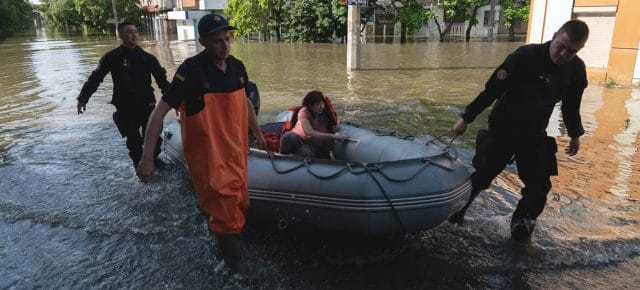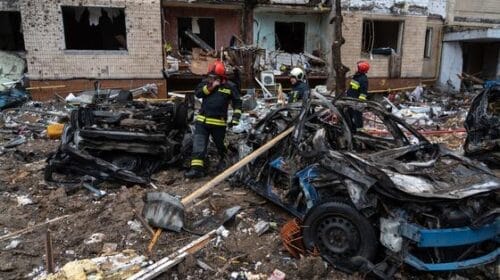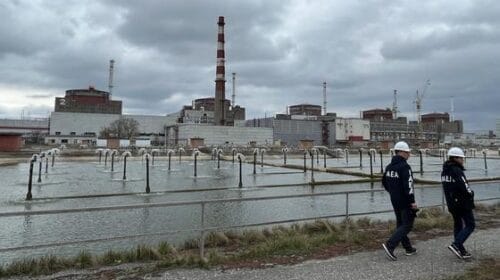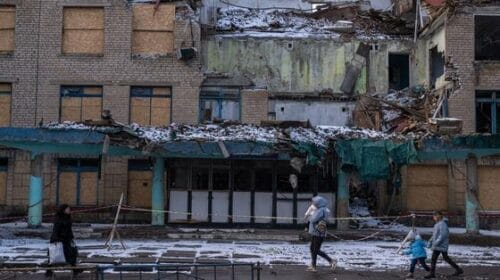Ukraine dam disaster: Lack of clean water, spread of disease, major risks

Homes have been flooded, forcing many to leave, and access to water, specifically clean water, is emerging as a major challenge.
In an interview with UN News, International Organization for Migration (IOM) spokesperson Olivia Headon, speaking from Kyiv, said the agency along with other humanitarian partners, had been rushing clean water supplies to areas that are receiving evacuees, “and also trying to get them to areas in the critical zone, on the banks of the Dnipro River.”
Waterborne disease
Some 17,000 people are in the immediate critical zone at risk of flooding, but only about 1,000 have evacuated far away from the dam, as according to IOM, most people wish to remain close to their homes.
Flooding and the lack of clean water are sparking fears of a surge in waterborne diseases, and humanitarians say that the health response will be “critical” in the coming days.
Addressing an emergency meeting of the Security Council on Tuesday night, the UN Emergency Relief Coordinator, Martin Griffiths, said “the sheer magnitude of the catastrophe” in and around the Kherson region, will only be evident in the coming days”.
He said it was already clear that it would have “grave and far-reaching consequences for thousands of people in southern Ukraine, on both sides of the frontline, through the loss of homes, food, safe water and livelihoods.”
Thousands of lives at risk
The destruction of the dam on Tuesday has put thousands of lives at risk, said IOM Director General António Vitorino, causing “severe environmental damage and led to further serious strain on response services in a country already dealing with the humanitarian fallout of more than a year of war”.
He said public infrastructure “should never be a target. Yet now, innocent civilians are not only living in a deadly flood zone but are set to face major shortages of clean water and critical energy supplies over the coming weeks, as the humanitarian situation worsens”.
UNICEF providing aid
The UN Children’s Fund, UNICEF, told UN News that the agency on Wednesday had provided up to 25,000 bottles of water, sanitation supplies, and over 10,000 water purification tablets.
They’ve also established teams of skilled aid workers at transit and evacuation points, to provide psychosocial support to children on the move and to support families.
Damian Rance, Chief of Communications and Advocacy UNICEF Ukraine, said the agency would support those displaced with cash transfers for three months, covering up to five people per household, for all those families affected.
Crimea supply threatened
IOM said the dam breach is also expected to affect the water supply to the Russian-occupied region of Crimea and other areas of Ukraine, as well as posing a threat to the cooling systems of the nearby Zaporizhzhia Nuclear Power Plant, although the UN atomic energy agency (IAEA) said on Tuesday there was no “immediate threat”.
Initial assessments by IOM – the largest humanitarian organization operating in Ukraine – indicate that drinking water and food are priority needs, and in coordination with local authorities, the agency plans to expand water and sanitation support, distribute emergency items, support collective centers and provide healthcare.
“Despite the devastation caused by the war and the challenges posed, we must invest in Ukraine’s recovery and reconstruction. While meeting the emergency needs, we must also keep a sharp focus on Ukraine’s peaceful future,” said Mr. Vitorino.

A woman is evacuated from a flooded Kherson neighbourhood after the destruction of the Kakhovka dam in southern Ukraine.




